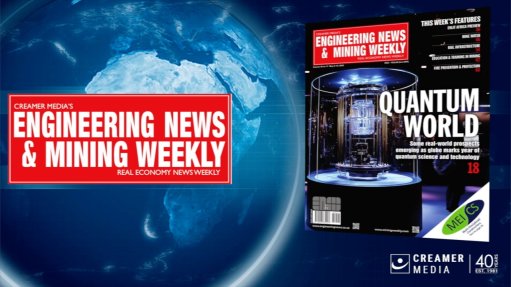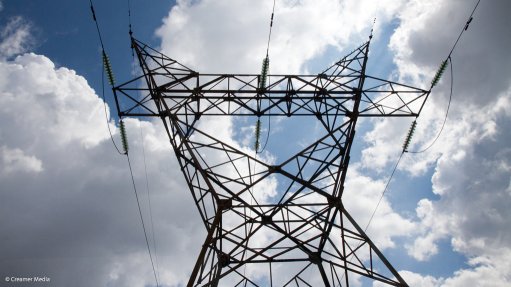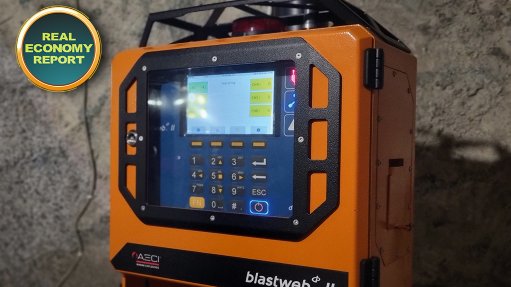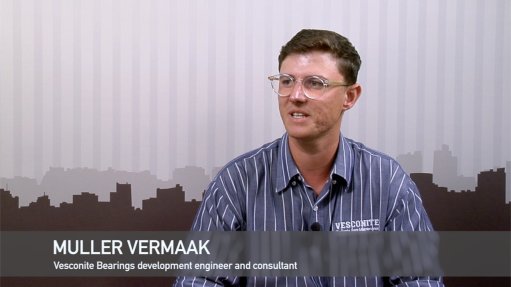BHP Billiton’s SA smelters’ income could fall by $500m in half-year to June
The income of diversified miner BHP Billiton’s two aluminium smelters could fall by about $500-million in the half-year ending June, credit solutions provider Coface South Africa risk analyst George Marais tells Mining Weekly.
South Africa’s only two primary smelters, controlled by BHP Billiton and situated in Hillside and Bayside, in Richards Bay, have shown successive losses, despite the preferred rates at which BHP Billiton is buying electricity from State-owned power utility Eskom.
“The losses were sustained at an average price of $2 391/t; however, the price fell to a low of $1 945/t in December 2011 and, since then, the metal has been maintaining price levels of around $2 100/t. At BHP Billiton’s production rate of 1.2-million tons a year, this would mean a drop of about $500-million in income in the half-year to end-June,” he explains.
BHP Billiton has also reported that it will no longer be investing resources in the production capacity of its smelters and, owing to concurrent losses, could see the plants closing down.
“The cost of producing locally is starting to outweigh the benefits,” Marais states.
Mining Weekly reported in October that Eskom had asked the National Energy Regulator of South Africa (Nersa) to review the “prudence” and “appropriateness” of its controversial legacy contracts with BHP Billiton’s aluminium smelters in KwaZulu-Natal.
The aluminium-price-linked contracts, which were signed in the early 1990s and are known to favour the world’s largest mining company, have been subjected to ongoing criticism since the load-shedding crisis of 2008.
Meanwhile, Eskom has stated that it is revising all local electricity tariffs.
“This could affect input costs and make the smelters even more costly to maintain, and BHP Billiton is focusing its operations on core business, away from operations that it considers to be unprofitable,” Marais says.
If the BHP Billiton smelters do close down, South Africa will no longer be a primary aluminium producer and the industry would have to import all primary aluminium, causing the balance of trade to suffer a more extensive deficit, he adds.
However, another possible outcome to this dilemma could be the buyout of BHP Billiton’s smelters by aluminium major Alcoa Australia, as Alcoa is still expecting demand to grow by 6.5% a year over a ten-year period, he says.
“BHP Billiton recently sold its 33% stake in the Guinea Alumina joint venture to its partners for $1, literally giving it away,” he adds.
The South African aluminium industry is finding it difficult to compete with international industries, as other countries have bigger markets and have made greater technological advances that enable companies operating in those countries to lower their costs, Marais says.
The flood of aluminium imports facing South Africa’s manufacturers is eroding the value of the R55-billion-a-year aluminium sector.
“The strong rand has resulted in imported goods being cheaper than locally manu- factured goods in many sectors and the ability of the Far East to produce products effectively and efficiently at a lower cost is a threat to manufacturing industries in Western countries,” he says.
In addition, these countries often incentivise exports and raw materials used by companies, which results in more productive industries.
In China, the foundry industry is able to produce 40-million tons of casting a year. One foundry in China employs more than 375 000 people, Marais adds.
“South African companies need to be more flexible and look for opportunities in niche markets where their ability is valued,” he suggests.
Further, South African companies should also consider becoming more effective by investing in new equipment and adopting new technology that would drive down costs; however, this requires significant investment and it is difficult for local businesses to justify spending large amounts in the current economic climate, Marais says.
Secondary Aluminium Industry
The secondary aluminium industry recycles scrap aluminium into new products. Recently, the price of aluminium scrap has been driven up, owing to global demand, and this has resulted in financial difficulties for the secondary smelters, Marais says.
“Sufficient scrap tonnage is available in South Africa to meet local needs, but the bulk of local scrap is exported owing to better returns on exported scrap than if it were sold locally. By exporting scrap, prices are increased locally.”
Given the current balance of trade deficit, it is not recommended that an export duty or any policy be implemented that could further worsen the country’s potential in an attempt to reduce the amount of exports, Marais explains.
However, by encouraging local sales through subsidies, the situation could be improved. In the short term, this will put more pressure on government, but it will have large payoffs in the long run, he adds.
The high value of aluminium scrap is a key incentive and a major economic impetus for recycling aluminium, which can be recycled repeatedly without loss of properties.
Further, aluminium recycling benefits current and future generations by conserving energy and other natural resources. It saves up to 95% of the energy required for primary aluminium production, thereby avoiding corresponding emissions, including greenhouse gases, Marais points out.
Comments
Announcements
What's On
Subscribe to improve your user experience...
Option 1 (equivalent of R125 a month):
Receive a weekly copy of Creamer Media's Engineering News & Mining Weekly magazine
(print copy for those in South Africa and e-magazine for those outside of South Africa)
Receive daily email newsletters
Access to full search results
Access archive of magazine back copies
Access to Projects in Progress
Access to ONE Research Report of your choice in PDF format
Option 2 (equivalent of R375 a month):
All benefits from Option 1
PLUS
Access to Creamer Media's Research Channel Africa for ALL Research Reports, in PDF format, on various industrial and mining sectors
including Electricity; Water; Energy Transition; Hydrogen; Roads, Rail and Ports; Coal; Gold; Platinum; Battery Metals; etc.
Already a subscriber?
Forgotten your password?
Receive weekly copy of Creamer Media's Engineering News & Mining Weekly magazine (print copy for those in South Africa and e-magazine for those outside of South Africa)
➕
Recieve daily email newsletters
➕
Access to full search results
➕
Access archive of magazine back copies
➕
Access to Projects in Progress
➕
Access to ONE Research Report of your choice in PDF format
RESEARCH CHANNEL AFRICA
R4500 (equivalent of R375 a month)
SUBSCRIBEAll benefits from Option 1
➕
Access to Creamer Media's Research Channel Africa for ALL Research Reports on various industrial and mining sectors, in PDF format, including on:
Electricity
➕
Water
➕
Energy Transition
➕
Hydrogen
➕
Roads, Rail and Ports
➕
Coal
➕
Gold
➕
Platinum
➕
Battery Metals
➕
etc.
Receive all benefits from Option 1 or Option 2 delivered to numerous people at your company
➕
Multiple User names and Passwords for simultaneous log-ins
➕
Intranet integration access to all in your organisation














